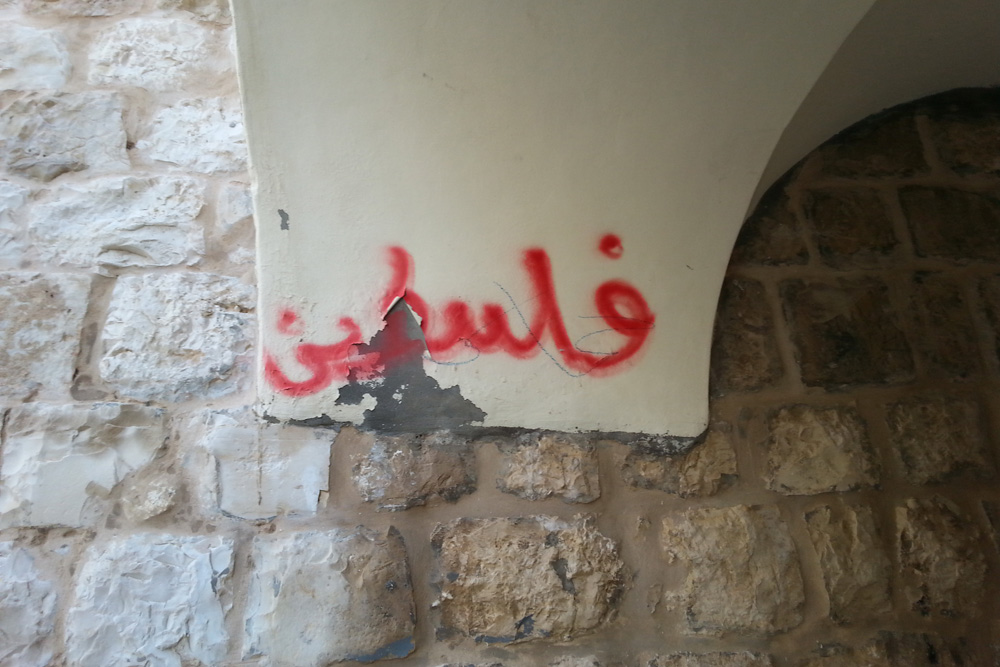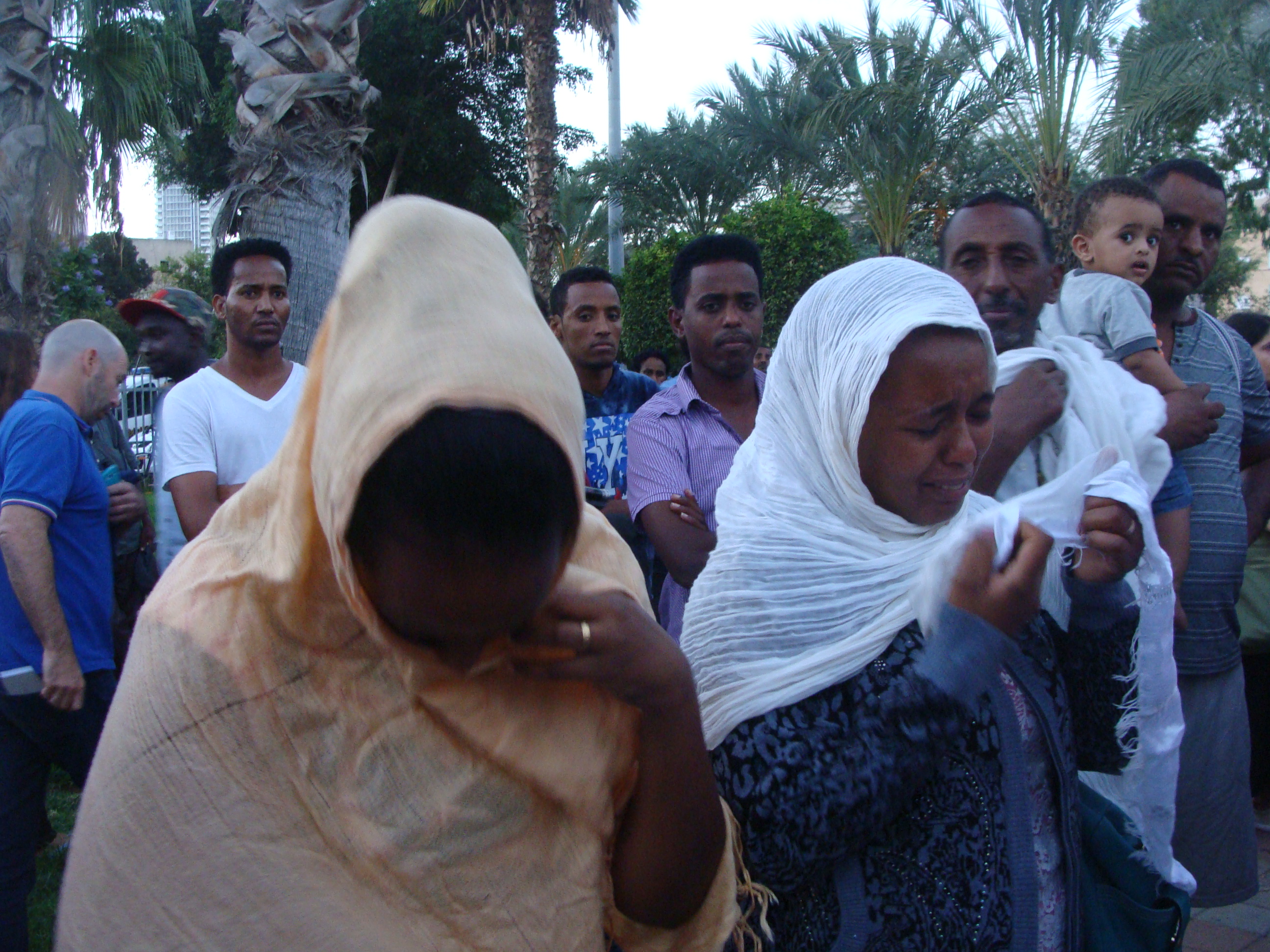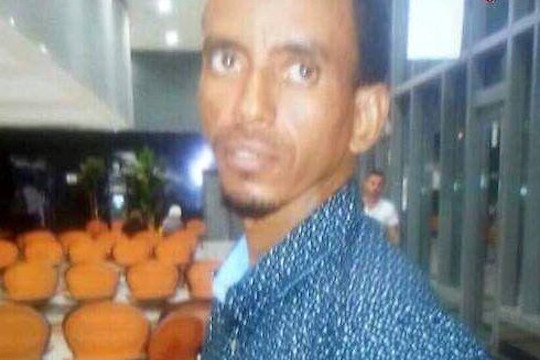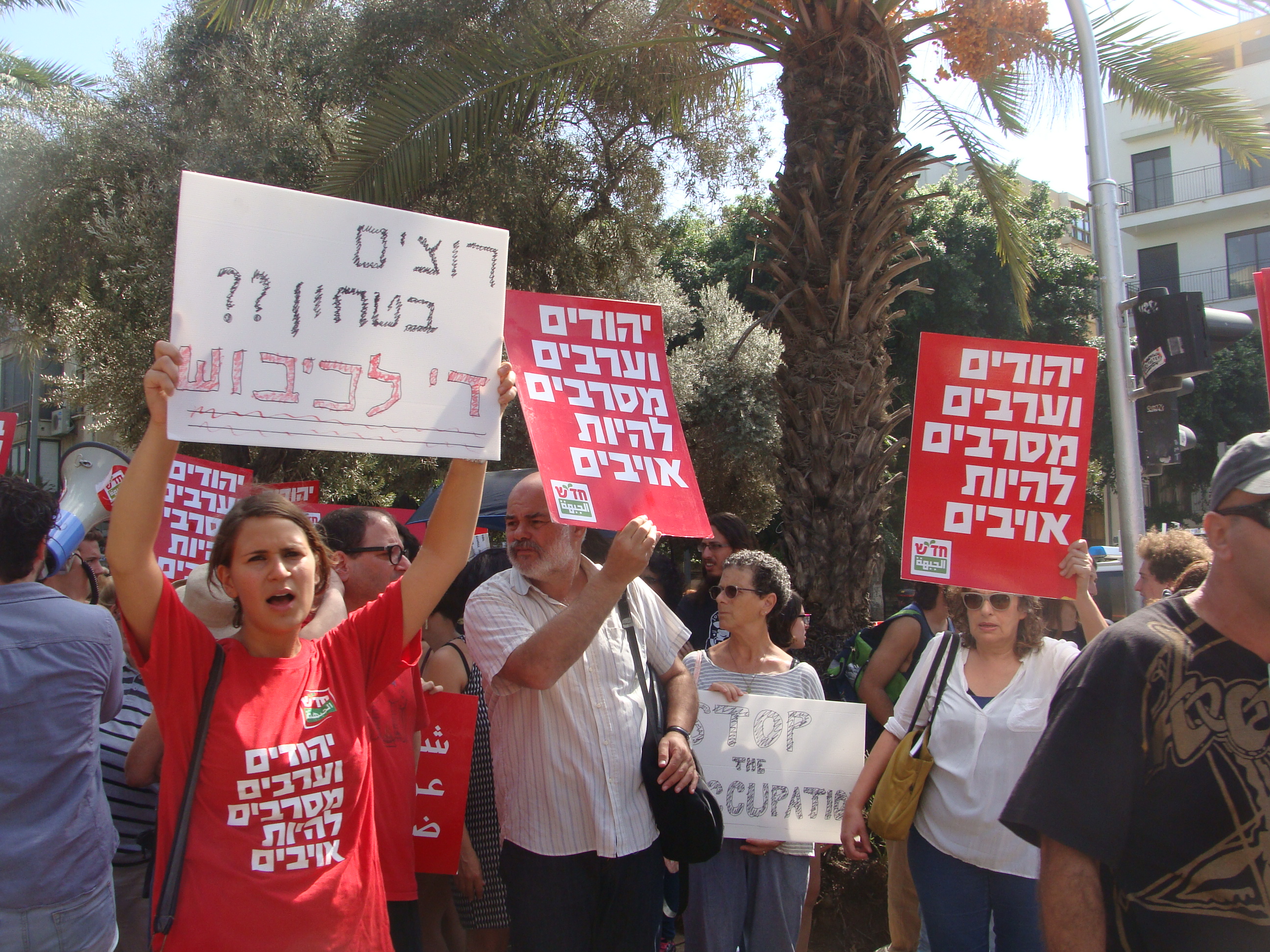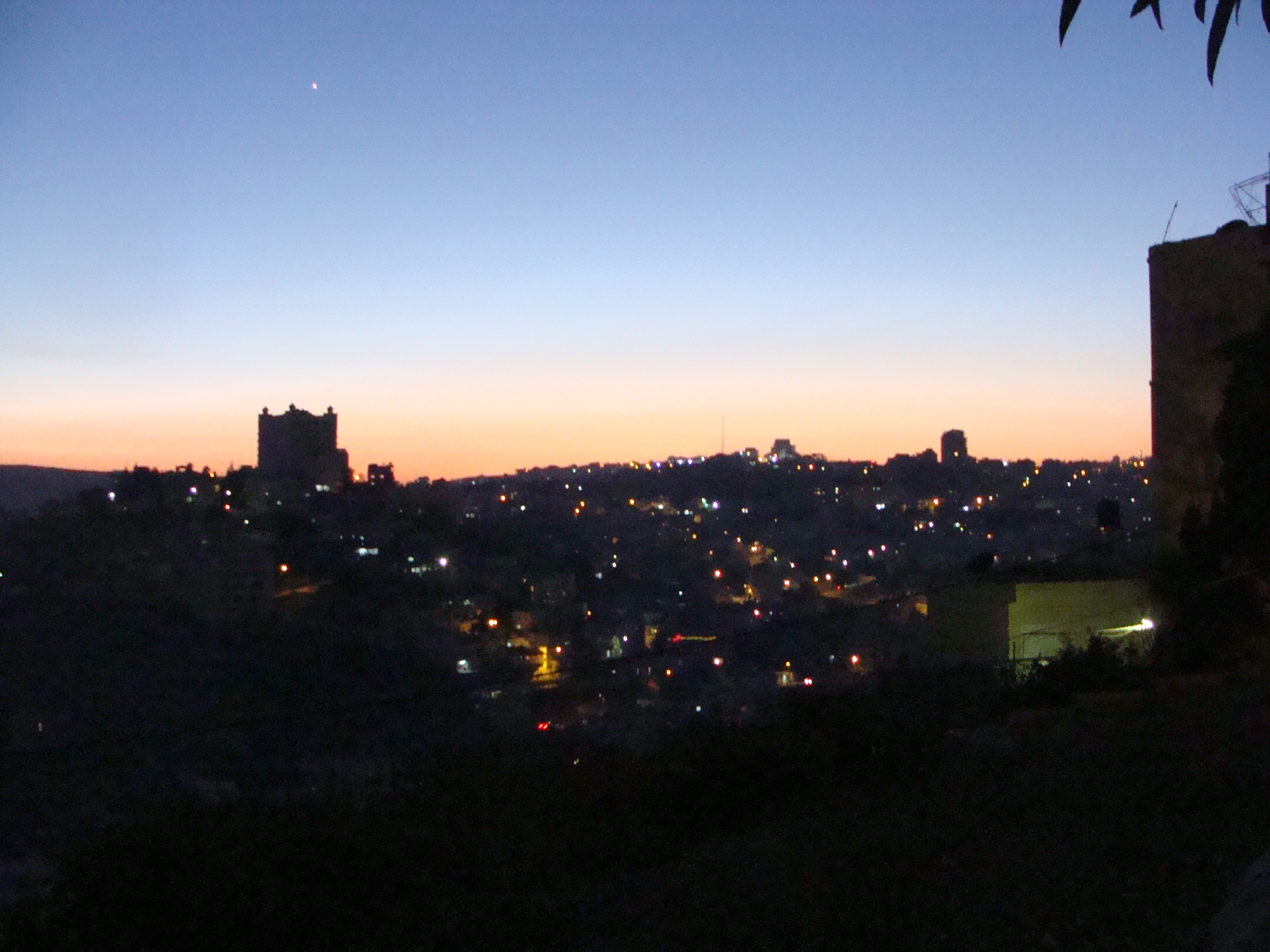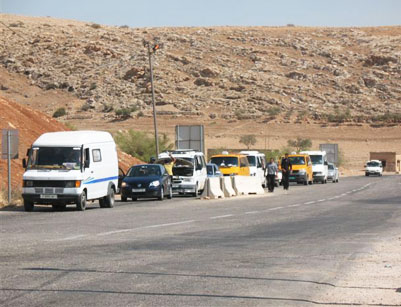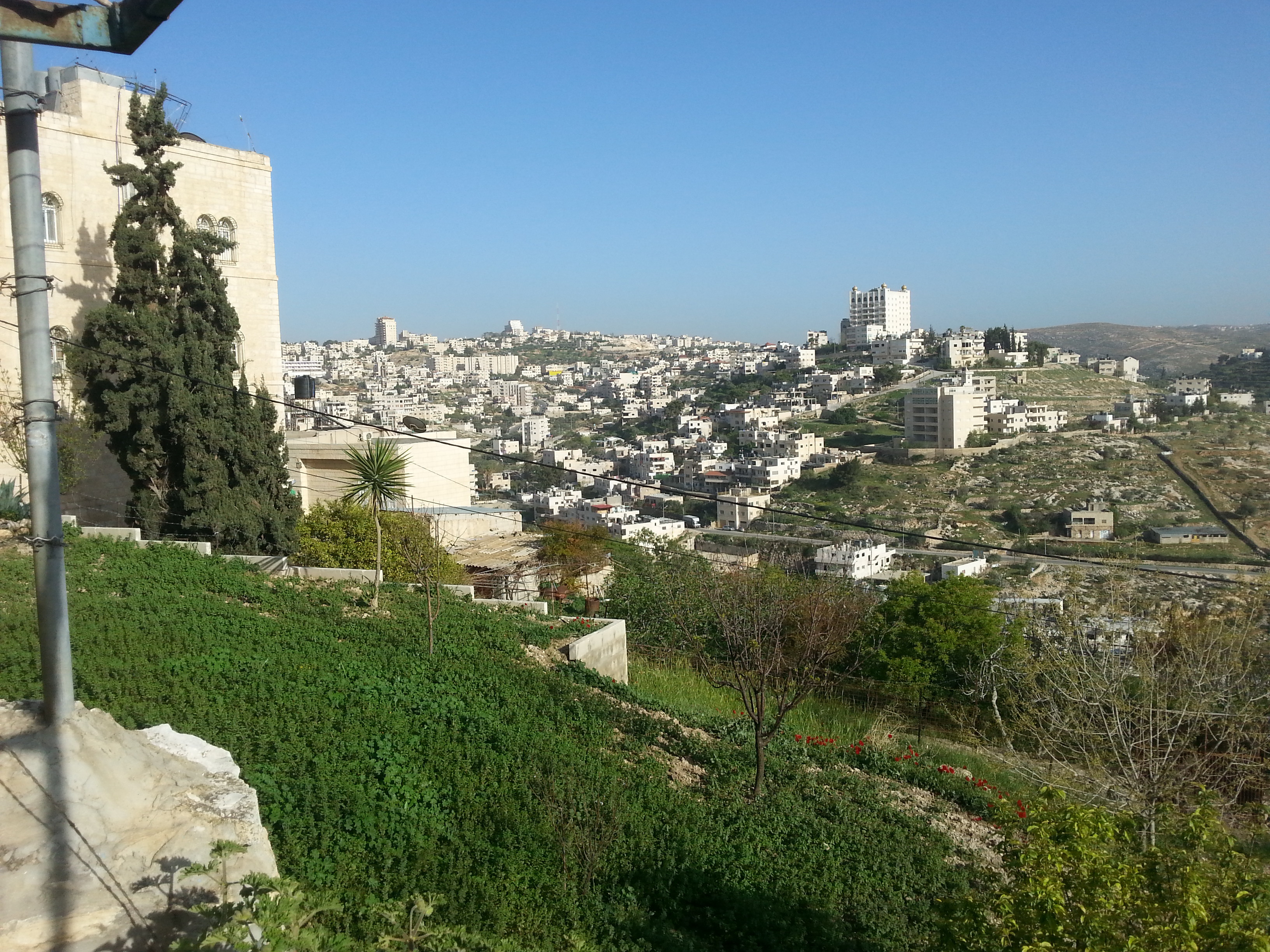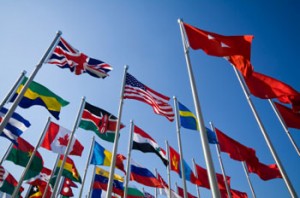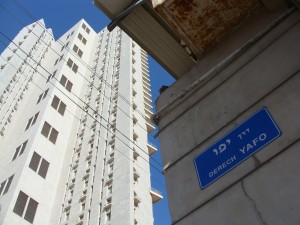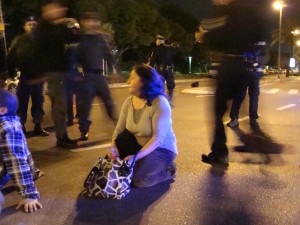+972, December 19, 2015
“I’m leaving.” I tell people in English, Hebrew, and Arabic. The words sound unexpected and foreign in every language, as though someone else is speaking them. While I’ve resigned from my post at the university and someone has already been hired to teach my fall classes, I haven’t given my landlady a firm answer as to whether or not I’m vacating the apartment, never mind a last-day-here-date. Nor have I begun to dismantle a houseful of stuff, the accumulations of a life.
My place looks like I’ll stay there forever. But tomorrow I’ll head to the US for a month; first to an artists’ residency in Vermont, then I’ll head to New York City, where Mohammad will join me. There, he’ll meet my family and we’ll attend my aunt’s wedding. After that, he’ll head to Florida to start his new life there. I’ll return to the West Bank as I’m scheduled to teach a two-week class at the end of the summer. We will spend July and August apart.
It’s our last afternoon together in Bethlehem. Our impulse is to pass the time in the garden, picking mish mish baladi (a local variety of apricot), sipping tea, and taking in the view. But we decide to pay a visit to the streets, alleys, and buildings that witnessed our courtship.
We head out, passing an old, large house like the one I live in. The limestone is the color of sand, the arched windows are framed by glistening white stone. We pass the French school—a stately building of rose-tinted stone surrounded by a blue gate—and we duck into an alley that cuts through the Christian quarter. It’s a residential area; there’s laundry hanging, the sounds of knives on cutting boards, the smell of food, voices, doors ajar reveal porches lined with potted plants.
On a white arch, red, spray-painted graffiti reminds the passerby: Palestine. I’m puzzled—everyone in this area is local and the word is written in Arabic. Why would someone in this neighborhood need to proclaim this Palestine to other Palestinians? Or was it something more personal, the artist’s way of asserting to himself or herself that Palestine persists?
We cross the plaza adjacent to the Church of Nativity and pass the tourist shops with their bright scarves flapping in the wind. As we climb the stairs next to the souq, we pass several gold stores. The moment we notice the jewelry, it’s obvious to both of us that my engagement ring should come from Bethlehem.
We go into one store and find a ring we like but decide to keep looking. In the second shop, we find an unusual ring—the edges are wavy rather than straight. We’ve never seen anything like it. I try the ring on my right hand—where I’ll wear it when we’re engaged as is the custom in Palestine. I move it to my left, as we will when we get married. It fits both hands perfectly. I head home alone while Mohammad haggles and pays.
When he joins me at the apartment, he’s holding a small plastic bag. I can see the outline of a box inside.
“I can’t give it to you today,” Mohammad says, adding that he wants to surprise me. But I know from previous conversations that he’s conflicted about getting engaged without his parents’ knowledge and blessing. This is especially true while we’re in the West Bank. I’m reminded, yet again, of how impossible a shared life would be here, that if we want to be together, we have no choice but to leave.
In the earliest hours of the morning, a driver from East Jerusalem arrives. “Omar,” as I’ll call him, already knows my ID situation and he knows how to avoid soldiers. He greets me on the street in Arabic; with the windows rolled down, we’re careful to stay in the language until we’re out of Area A. Once we’re on a settler road, we switch to Hebrew because it’s the easiest way for us to have a conversation. We chat all the way to Ben-Gurion Airport about everything—his family which includes a wife and four children, the situation in East Jerusalem, his thoughts about the Jews, the difficulties Mohammad and I have faced.
Omar is certain that if we really want to make it work, we can. He’s sure that, once we’re married, Mohammad’s parents will come around.
“If we get married,” I correct him.
***
Just a few days before Mohammad is supposed to leave for America, three Israeli teenagers—Eyal Yifrach, Naftali Fraenkel, and Gilad Shaar—disappear in the West Bank. The army focuses its efforts in Hebron and the surrounding villages; Hebroni men below the age of 50 are not allowed to exit the West Bank. Although he lives in Ramallah, Mohammad was born in one of those villages of Hebron; its name is written in Hebrew on his ID card. There’s no hiding where he comes from. Will he be able to cross Allenby Bridge into Jordan? Will he make it to my aunt’s wedding? Will he meet my parents? If he can’t get out of the West Bank, we wonder, how long will he be stuck there?
***
Two days before his flight, Mohammad decides to try his luck at the bridge. He gets through.
And then it’s the evening of his arrival; his plane will land in just a few hours. I don’t know what to do with myself in the meantime, so I dress up like I’m going to a party. I put on a one-shouldered black and white striped dress. I have a painful hairline fracture in my left foot and the top of my foot is swelling a bit but I wince and cram it into a black high heel. I slide into the other shoe, apply make-up, and pull my hair up. Some jewelry, perfume, a swipe of lipstick and I head to the subway.
As I ride the train to JFK airport, a couple of young black women board and sit across from me. One points at me and says to her friend, “Ooooo, look at princess, all dressed up. Don’t she look good?” They fall into each other, laughing. When they catch their breath, they continue to taunt me.
I grew up in the Deep South so this sort of thing isn’t new to me. And, as a public school kid, I saw enough white on white and white on black and black on black violence to know that the girls are looking for a reaction, that they’re trying to provoke me.
I avoid eye contact but settle into to my seat. I feign nonchalance—I lean back, cross my legs, and examine my nails. I play with the silver bangles on my right arm, counting them, rearranging them. When I realize my fidgeting makes me look nervous, I stop, pull a collection of Hebrew short stories out of my purse, and do my best to concentrate on the words on the page.
Still, the taunting gets to me, in part because I resent the assumptions behind it. But I can’t tell these girls that I grew up in a neighborhood that probably wasn’t so different from theirs; I can’t tell them about the free lunch days; I can’t tell them how we qualified for food stamps but my mom was too proud to take them; I can’t tell them that I was the only “white girl” on the bus to elementary school and that the black kids reminded me of that every day. “White girl, white girl,” they said when I boarded. I can’t tell them that those children never bothered to ask my name, nor did they ask themselves how it was that we lived on the same side of town and rode the same bus. Nor did they ask why when we all went through the lunch line together I—like them—didn’t have to pay.
I can’t tell these girls that I’m going to meet my partner at the airport because we aren’t afforded the right of living together in what’s supposed to be our land. I can’t tell them that we’re moving to America hoping to avoid exactly the kind of thing that’s happening on the train right now.
I’m angry and disappointed. Even though Mohammad hasn’t even arrived yet, I want to protect him from these type of encounters. I wonder if—with his rosy view of the U.S. in general and of New York City, in particular—he’ll be even more disappointed than I am when something like this happens again. And it’s inevitable that it will.
Still, I keep my mouth shut. I remind myself where these girls are coming from and how, despite the poverty I experienced as a child, my light skin has afforded me some privilege. I understand that they feel voiceless and that it’s easier to pick on a white girl alone on a train than it is to tackle the enormous and deep inequalities that are part of the fabric of American life. So I sit and take it until they leave.
***
I have Mohammad’s flight number memorized. When I get to JFK, I find it on the arrivals board—on time—and head to the customs gate. There’s a crowd milling about. I ask an Asian woman with glasses if she’s waiting on the flight coming from Heathrow, which is where Mohammad had his layover. She is.
“Have any passengers come out?”
“No, not yet.”
I find a place to stand. My left foot throbs. I clench my teeth against the pain. I make a fist and dig my nails into the palm of my hand. I will not take these shoes off. I will look perfect when he steps into the terminal. We will have our happy ending.
I edge closer to the frosted, sliding glass doors. I find myself in the middle of the aisle, step aside, only to realize I’m right in front of someone. I excuse myself, move closer to the doors. Put my purse down between my feet. Pick it up, put it back on my arm. Move again, repeat, like some bizarre sort of square dance sans partner.
The frosted doors slide open and, the passengers begin to trickle out. Their faces hopeful, they scan the waiting crowd. That flash of recognition, a smile, a wave. Their gait speeds up, they rush towards their loved ones.
The crowd thickens as the passengers meet their families and friends. It thins as they move on to collect their luggage. Soon, it’s just a handful of people left, waiting. The doors are shut again. Where’s Mohammad? I worry that maybe there was something wrong with his visa. Or maybe he’s being questioned. No, this isn’t Israel. But sometimes the U.S. doesn’t seem so different.
Or maybe I’m at the wrong gate.
I ask a black woman with short hair if this, indeed, is the flight from Heathrow. “I sure hope so,” she laughs.
A moment later, she’s waving at a man striding towards her. They hug and off they go, his carry-on rolling behind him.
There’s just a few of us left at the gate.
Maybe Mohammad fell asleep during his layover and missed the flight, I think.
The doors slide open and a man in a bright blue uniform comes out. Homeland Security. I brace myself, certain he’s going to come tell me that they’ve detained Mohammad. Instead, he turns and opens a door at the end of the hall. I see people inside. It looks like some sort of waiting room. Is Mohammad in there?
The glass doors part and another Homeland Security official emerges. He heads down the hall and into the same room. I try to get a peek but can’t.
And then the glass doors part again and it’s Mohammad. He dons a wool sports coat—I know without asking him that he wore it so he could save space in his luggage—a white linen button down shirt, jeans, and leather shoes. He’s got only one bag and a backpack with him. He puts them down and we hug.
“Hayati,” my life, he says as we hold each other.
***
It’s the morning after Israeli forces shot and killed a Palestinian in Ramallah, just meters from Mohammad’s old office. We’re headed to Coney Island for the day and, in a bid to keep our expenses down, are filling his backpack with snacks and bottles of tap water. I unzip a pocket only to find the ring from Bethlehem. Not wanting to blow the surprise, I don’t say anything about my discovery. I continue stocking the backpack.
When we get to Coney Island, we start at the aquarium. Inside, it’s cool, dark, and quiet—save for a school group that weaves through the place, puncturing the silence like a radio suddenly turned up to full volume. We linger at each tank, watching fish flit against endless turquoise waters, admiring electric-fluorescent skins and glimmering scales that seem to change colors as their wearer curves around rocks. I forget about Brooklyn, Israel, Palestine—the world—as I follow the fishes’ meanderings.
When we step outside, the day is hot, the sky cloudless and bright. The light is painful to our eyes, which have adjusted to the aquarium’s dim lighting. We squint.
Mohammad’s phone rings. It’s his brother calling from the West Bank—not the brother I’ll meet soon, in Florida, but one I’ve never met. When Mohammad answers, the phone disconnects. It rings again. And, again, Mohammad picks up only to hear nothing on the other end.
Mohammad tells me he’s worried something has happened—why else would his brother keep calling and calling like this? He sits on the nearest bench, clutching the phone in his hand, staring down at it. He tries to ring his brother but gets a busy signal.
This goes on for nearly half an hour until they finally manage to connect. Mohammad’s voice is full of relief when his brother answers. He smiles and laughs when he realizes everything is fine. He tells his family that New York is good and talks about his trip. But he’s careful to do so only in first person singular. “I.” There’s no “we” or “us.” There’s no Mya in any sentence. No mention of the fact that he’s met my aunt and her fiancé, my favorite cousin, my grandfather, that in a few days he’ll meet my parents.
If there’s a real emergency in Palestine at some point and Mohammad has to go home, I wonder, will he quietly omit me then, too? Will I stay alone in the States—maybe with children—so he can head back free of his unacceptable Jewish wife? And what if he has to stay in the West Bank for whatever reason? What will happen to me?
Intellectually, I understand his situation. Still, I can’t bear sitting there, listening to him talking about his solo trip to New York City. Listening to him talk to the family I’ve never met, who don’t know that he’s bought a ring and that we’ll soon be engaged.
I mime that I’m going to the bathroom. When I lock myself in a stall, I stand, focusing on my breathing. I try to stifle the voice in my head that’s telling me I’m a fool to have quit my job when I’m not even sure that he has, indeed, told his family about me at all. I try not to wonder why I’m following him to Florida, a place that holds few opportunities for me in a country I have no desire to live in.
Later that day, Mohammad proposes to me. We’re on the Ferris wheel, suspended in the sky, Coney Island tiny and insignificant below. My heart should be floating, too. But the unmovable earth awaits us.
***
The day Mohammad flies to Florida, the three Israeli teenagers who disappeared in June are laid to rest. Late that night, Jewish settlers kidnap Mohammed Abu Khdeir, a 16-year-old boy from East Jerusalem and drive him to the woods. They take him to the forest adjacent to Kiryat Yovel. There, between the trees where Mohammad and I took our first picture together, the Israeli men commit a murder beyond brutal. They force the boy to drink gasoline. They soak his thin body in the liquid and set him alight while he’s still alive. His last breaths were full of ash.
Now East Jerusalem is burning on the muted TVs at the gate at JFK, where I await my flight to Tel Aviv. Palestinians are clashing with Israeli forces. The scene flashing before me is unfolding on streets I’ve driven and walked, roads I’ll be on again in just a matter of hours as I take public transportation from Ben-Gurion Airport to Jerusalem and then to Bethlehem.
I realize Mohammad will not be coming to spend every weekend with me this summer. I’ll be alone, the West Bank simmering around me.
***
An American-Israeli friend stayed in my apartment and took care of my cat while I was in the States. He’d been contemplating a move to Bethlehem; my place was his trial run.
I arrive home to find that he’s already left.
He emails me, explaining that the situation has been very tense. Israeli forces have been raiding houses in Beit Sahour—which is just down the road from my apartment. And my friend almost got nabbed by soldiers when he took the bus in to Jerusalem recently.
He’s had enough and went back the previous day.
I’ve always felt safe in Bethlehem but, when I go to bed that night—with Israeli tanks and troops amassing on the Gaza border and Hamas firing rockets into the south—I think about something a Palestinian friend said to me in December, during the Christmas party Mohammad and I hosted. I’d had a little too much to drink and found myself, more than once in the evening, slipping into Hebrew. The friend, a close friend of Mohammad’s, realized I must have an Israeli ID and pulled me aside.
“I’m scared for you,” he said, in Arabic. He emphasized that he, personally, had no problem with me living in Bethlehem. He knows me, he knows my politics, he loves me and he loves me and Mohammad together.
“But there are people who don’t think like me,” he continued. “And if they find out that you’re here, alone—I’m scared for you.”
Six months later, as something stirs in the garden, I remember his words. I think of the family of settlers who were killed in Itamar in 2011. I recall the student who waited for me after class one day. “So, I heard you’re Jewish,” she began. “I really admire you for teaching here. You’re so brave. Anyone could bring a gun to campus and shoot you.”
I tell myself that there’s no one in the garden. It’s just the wind, I think, reminding myself that I’m not a settler. And I curse myself for thinking like a racist, paranoid Israeli, for being so self-centered and so self-important as to lie in bed thinking anyone would care that I—one person, a harmless woman who works at a Palestinian university and rents from a Palestinian landlady and is not occupying anyone’s home—am here and that they would be so bothered as to do something about it.
Outside leaves skitter across the garden’s stone path.
Or are those footsteps, someone walking through the leaves?
I try to think things through. The house is nestled into the side of a hill, on an old olive terrace. It’s at least a ten foot drop to the orchard below and then another huge leg-breaking-jump down to the road. So for someone to get into the garden, they’d have to scale not one but two stone walls. I’m completely safe.
The leaves rustle again. I think of the three settlers who disappeared (but you’re not a settler! I remind myself again) and I think of Abu Khdeir. Most Israelis wouldn’t kill a Palestinian. And most Palestinians wouldn’t kill me. But both sides have their extremists and these are tense times.
My mind fills then with angles—the various trajectories a bullet could take if it was fired into my bedroom from different positions.
I remind myself that my bedroom is on the other side of the enclosed porch that also has bars on the window. It would be quite a shot, aiming through the bars of one window towards another barred window.
Still, I can’t sleep.
I slide out of bed and, staying below the window, edge towards the armoire. I remove some blankets and I make a nest on the floor in the “blind spot” between the bed and the bureau, where no bullets could possibly reach.
The sun rouses me in the morning. As I wake and remember why I’m on the floor, I feel ashamed. I fold the blankets and put them back in the bureau. I make the bed and look at the room, which is full of light. It’s like last night never happened.
I make some Nescafe, grab an ice pack and a towel for my still-fractured foot, and take a seat in the garden. My cat joins me. It’s a beautiful summer day. I tell myself that everything is fine, that everything will be just fine.
